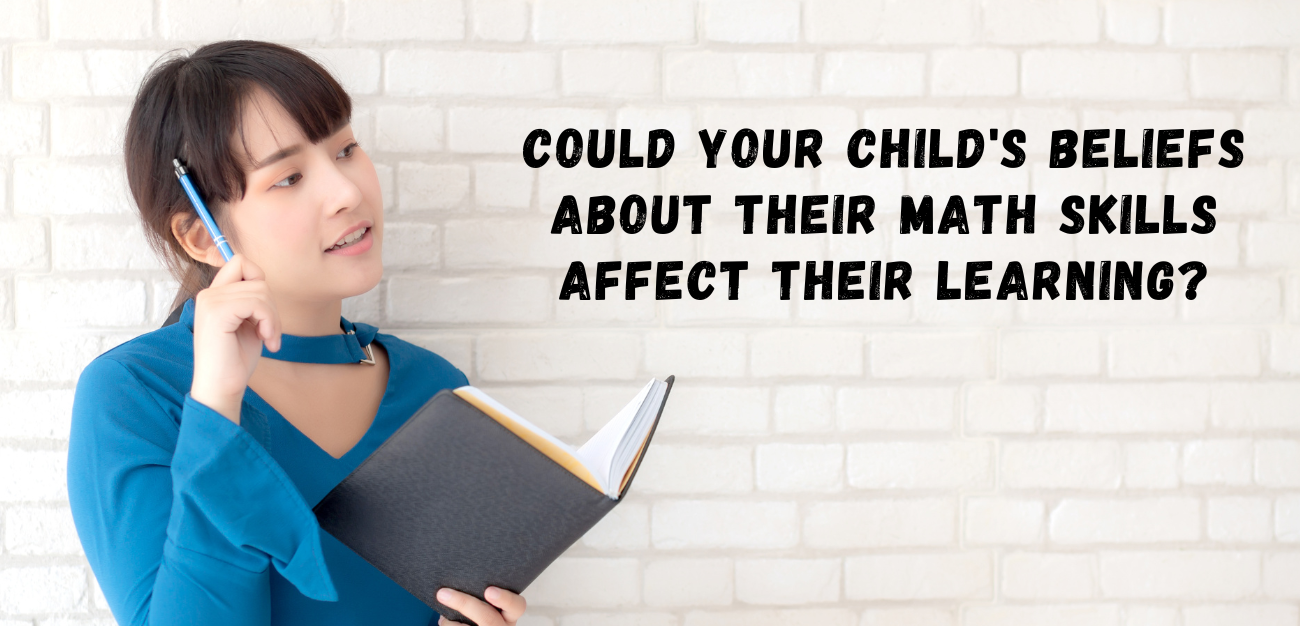We all know that beliefs play a big role in our lives. They can dictate how we act, what we do, and even who we are as people. What you may not realize, however, is that beliefs also play a role in how we learn. In this blog post, we’ll take a look at the connection between beliefs and learning and explore how they both work together to shape our overall understanding of the world around us. We will also discuss how at Dropkick Math Academy, we use the connection between beliefs and learning in our math tutoring programs.
The Relationship
Beliefs and learning are inextricably linked. Our thoughts influence the way we learn, and our experiences shape our beliefs. This interconnected relationship is evident in both children and adults. For example, a young child who believes they are bad at math is likely to have difficulty learning new concepts. Conversely, an adult who believes that they can learn a new language will be more successful in their efforts than someone who doesn’t believe it’s possible.
When we believe we can learn, we are more likely to succeed. When we believe that we can’t, we are more likely to give up. The next time you’re facing a challenging task, take a moment to think about your beliefs. Are they helping or hindering your learning? If they’re not helpful, try to change them. Beliefs are just thoughts–and thoughts can be changed. Once you understand how to change your beliefs, you can teach your child when they are facing a challenging task.
The Types Of Mindset
Mindset is the set of beliefs and attitudes that your child may have about themself and their ability to learn. There are two main types of mindset. A fixed mindset is when they believe that their abilities are fixed. They may think they are not smart enough or not good enough at a particular skill. A growth mindset is when they believe that their abilities can be developed. They may not be good at something yet, but they know they can improve with practice.
Mindset has been shown to impact motivation and learning. Children with a fixed mindset may give up more easily because they think they can’t improve. Children with a growth mindset are more likely to invest time and effort in learning because they believe they can get better. This just goes to show how vital mindset is for students because it can affect how resilient they are in the face of challenges and how much effort they are willing to put into learning. Students with a growth mindset are more likely to persist in the face of difficulties, persevere through setbacks, and see mistakes as opportunities to learn.
Changing Mindset
American psychologist Carol Dwek has changed the minds of millions of people through her work on mindset. She argues that the growth mindset will allow a person to live a less stressful and more successful life.
Carol and her teams of researchers have conducted various studies showing that the ideas we hold about ourselves matter. These studies say something important about how fixed beliefs impact many aspects of life, including how children learn.
One landmark study from Carol Dwek showed the impact of different beliefs on students’ learning. The study analyzed grade 7-8 math students. The students were divided into two groups that differed in how they thought about themselves. All students went to the same school and had the same math teachers.
It was found that the students who held positive beliefs were in an upward direction in their achievement. However, those with a fixed mindset stayed consistent and were lower achieving. Many other studies have since duplicated these results, showing the importance of mindset at any age.
How To Help A Child Change Their Mindset
If your child struggles with self-beliefs, they may need help changing their mindset. Try the following sets to help set them up for a healthier mindset.
– Identify their triggers. Ask them what situations or tasks make them feel like they’re not good enough. When do they start thinking negative thoughts about themselves?
– Help them reframe their thinking. For example, when they say they are not smart enough, correct them and tell them to repeat after you, “I’m willing to put in the work to learn this.”
– Have your child practice gratitude. Remind them of all the things they are thankful for in their life, including their successes (big and small).
– Seek out supportive people for your child to learn from. Find someone who believes in them and will encourage them on your journey toward growth. At Dropkick Math tutoring, we offer personalized learning, so each child is encouraged and guided in the help they need.
Take The Time With Your Child
Mindest plays an important role in learning, so it’s worth taking the time to help your child cultivate a positive mindset. Doing so can help them overcome challenges, persist through setbacks, and reach their full potential as a learner.
Your beliefs about learning have a big impact on your child’s development. If you believe that learning is important, your child is more likely to develop the same belief. Similarly, if you believe that intelligence is fixed, your child is likely to internalize that belief as well. Therefore, it is important for parents to model healthy beliefs about learning. One way to do this is to emphasize the importance of effort and persistence. Help your child see that intelligence is not fixed but can be developed through hard work and practice. Encourage your child to view mistakes as opportunities to learn and grow. You can help your child develop into a lifelong learner by modelling these healthy beliefs.
At Dropkick Math, our online math tutor services work with the parent and child to help build confidence and overcome any learning gaps in mathematics. Our program offers a unique take on math tutoring by focusing on relationships and engaging the parent/guardian. Visit our website today to learn more about how we help children grow and learn with a positive mindset!





